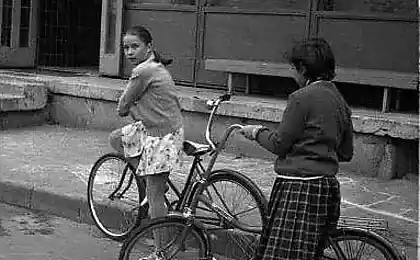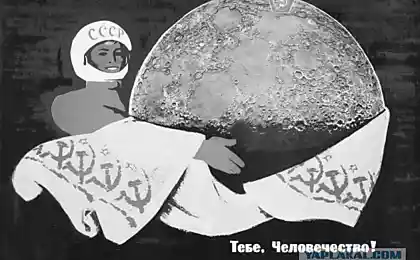207
The Union has long collapsed, but some Soviet installations still do not allow people to live freely.
The Soviet Union faded into oblivion more than 30 years ago, but we still hear its echoes. The Union has never been a magical land where all dreams come true. Partly because of the sheer size, it’s hard to create the conditions for everyone to live equally well. Nevertheless, the face of the Soviet era was always a humble man with pride and dignity.
What was his modesty? Stand up a mountain for a comrade, but do not ask for honors - yes, it is noble and beautiful. What about the other things we inherited from the Union? For example, hide an expensive gift set under three locks and drink tea only from old chipped mugs.
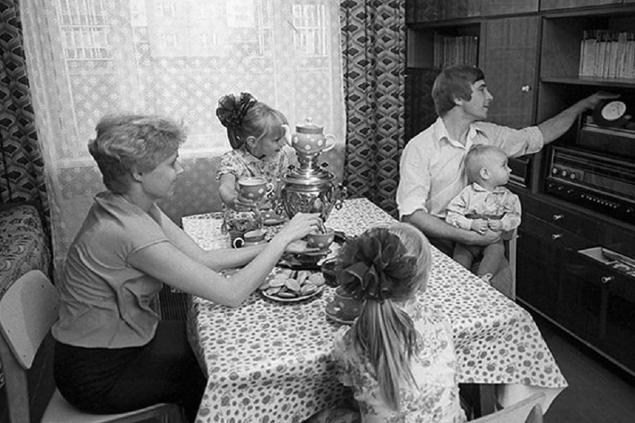
GettyImages Edition "Site" It invites you to look into the past and to evaluate impartially how our habits were born. Some statements may seem controversial and give food to the mind. Join the discussion!
Every owner of a package with packages can safely throw responsibility for this habit on genetic memory. In the USSR, cellophane bags were in great shortage. Therefore, many people still store them, wash them and throw them away only after the first holes appear.

Meanwhile, Western eco-activists are popularizing avoska, well-known to everyone from the USSR. The less plastic we use, the more we benefit the planet. Good traditions are worth bringing back!
Doing everything with your own hands is a great feature. Almost any Soviet person at least once in his life made a birdhouse, stool or made repairs in the apartment.
In those days, the services of masters were not popular. Why overpay for someone else’s work when a “real man” can handle a wooden rubank himself, and a “real woman” can clean the whole house even after a shift at the factory (Cleaning). No, not yet. And even though sometimes it turned out obliquely and crooked, but the money remained in the family, and in the eyes of friends and colleagues you looked like a master of all trades.

In the era of scarcity, entire families survived by prolonging the life of household things. For example, a detergent or shampoo was diluted with water, onions were stored in old women's tights. For many years, mountains of paper and old newspapers were kept – fish were cleaned on them, used as a wrapper for school textbooks, and homemade curlers were made from old books.
There is nothing wrong with saving, as well as scraping the remains of lipstick with a match. And also keep on the balcony old bicycle tires, coils of rusty wire, damp wallpaper rolls and equipment that has long failed. I'll need it. Was it ever useful? Write about your experience.

Do not use expensive gifts Get an expensive service for the anniversary for 6 persons of the production of LFZ or a magical Gadairov "Madonna"... And hide this treasure in the sideboard until the end of time, only to admire and show the guests. And then the great-grandchildren to bequeath!
We hope that future generations will be able to get rid of the syndrome of delayed life - it seems that it was he who prevented the Soviet man from enjoying tea from a beautiful service. Living life here and now, pampering yourself is really a whole science.
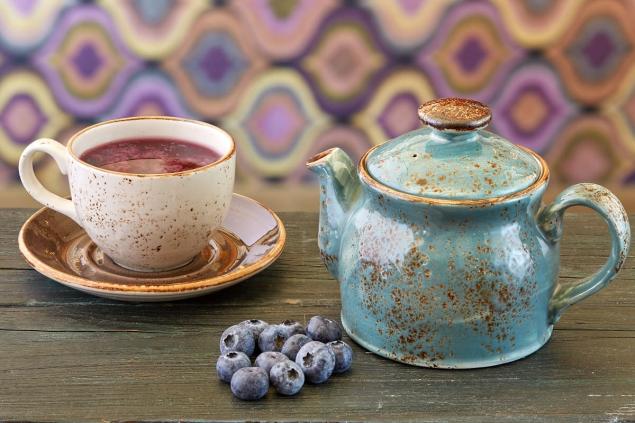
In the age of evidence-based medicine, which struggles with non-working and dangerous methods of treatment, many immigrants from the USSR still breathe over boiled potatoes in the hope of curing a cold. The course goes and the famous ointment "Star", and compresses of vodka, and all sorts of homemade infusions.
Doctors do not get tired of repeating: self-medication will do you more harm than good. For example, the same famous inhalation with potato steam can cause a burn of the respiratory tract. And alcohol compresses for inflammation of the ear will help far from every type of otitis and in the worst case will increase pain.
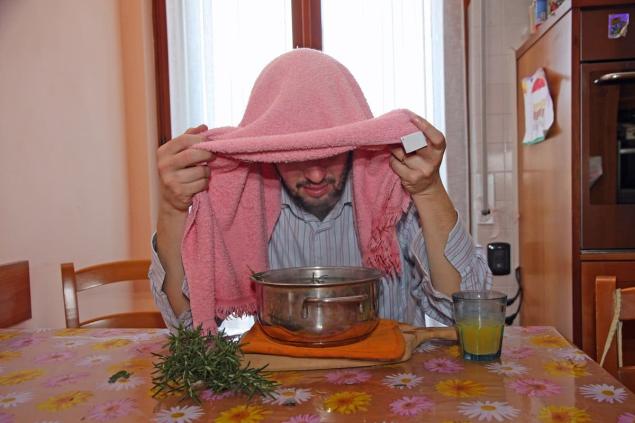
Of course, no one will reproach you for dressing “without gloss” in your apartment. Some 15-20 years ago, clothing manufacturers did not even allocate a home wardrobe in a separate category, and few people bought a kit specifically for the home. In the course were (and still go) old stretched T-shirts, sweaters and trousers with extended knees.
Our mothers and grandmothers were very careful with their clothes. Rarely did I find a dress to taste in the store. The outfits were either sewn on their own, or “gained” scarcity through acquaintances, or wore what the Soviet textile industry offered.
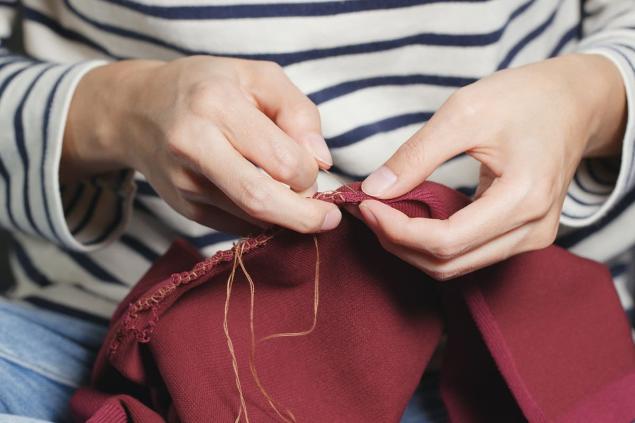
Things were worn after each other, and the spoiled ones were not thrown away, but repaired. Many still put under the trousers stained capron tights and do not see anything wrong in this.
To finish eating, even when full "Until you finish, you will not get up from the table!", "Finish, or the husband will be a ripple!" - frightened us in childhood mothers and grandmothers. The habit of leaving a plate perfectly clean after eating is a legacy of the postwar years.
What does this lead to in the dry residue? When a person grows up, he ceases to hear his body (after all, he was once instructed whether he ate or not). For many years, there is a feeling of guilt in it ("Well, I cooked, tried, ungrateful!"). Eating disorders and increased anxiety are easier to prevent than to treat.

Because the memory of punitive dentistry of the USSR (yes - free) is so easy to stamp out. Even having experienced all the charms of modern medicine (for example, dental treatment in a dream), we will probably remember with shudder the whole life the whistle of Soviet drills and the strict “Be patient, you do not hurt at all.”
And what attitudes come from the USSR still interfere with your life? Share it in the comments.
What was his modesty? Stand up a mountain for a comrade, but do not ask for honors - yes, it is noble and beautiful. What about the other things we inherited from the Union? For example, hide an expensive gift set under three locks and drink tea only from old chipped mugs.

GettyImages Edition "Site" It invites you to look into the past and to evaluate impartially how our habits were born. Some statements may seem controversial and give food to the mind. Join the discussion!
Every owner of a package with packages can safely throw responsibility for this habit on genetic memory. In the USSR, cellophane bags were in great shortage. Therefore, many people still store them, wash them and throw them away only after the first holes appear.

Meanwhile, Western eco-activists are popularizing avoska, well-known to everyone from the USSR. The less plastic we use, the more we benefit the planet. Good traditions are worth bringing back!
Doing everything with your own hands is a great feature. Almost any Soviet person at least once in his life made a birdhouse, stool or made repairs in the apartment.
In those days, the services of masters were not popular. Why overpay for someone else’s work when a “real man” can handle a wooden rubank himself, and a “real woman” can clean the whole house even after a shift at the factory (Cleaning). No, not yet. And even though sometimes it turned out obliquely and crooked, but the money remained in the family, and in the eyes of friends and colleagues you looked like a master of all trades.

In the era of scarcity, entire families survived by prolonging the life of household things. For example, a detergent or shampoo was diluted with water, onions were stored in old women's tights. For many years, mountains of paper and old newspapers were kept – fish were cleaned on them, used as a wrapper for school textbooks, and homemade curlers were made from old books.
There is nothing wrong with saving, as well as scraping the remains of lipstick with a match. And also keep on the balcony old bicycle tires, coils of rusty wire, damp wallpaper rolls and equipment that has long failed. I'll need it. Was it ever useful? Write about your experience.

Do not use expensive gifts Get an expensive service for the anniversary for 6 persons of the production of LFZ or a magical Gadairov "Madonna"... And hide this treasure in the sideboard until the end of time, only to admire and show the guests. And then the great-grandchildren to bequeath!
We hope that future generations will be able to get rid of the syndrome of delayed life - it seems that it was he who prevented the Soviet man from enjoying tea from a beautiful service. Living life here and now, pampering yourself is really a whole science.

In the age of evidence-based medicine, which struggles with non-working and dangerous methods of treatment, many immigrants from the USSR still breathe over boiled potatoes in the hope of curing a cold. The course goes and the famous ointment "Star", and compresses of vodka, and all sorts of homemade infusions.
Doctors do not get tired of repeating: self-medication will do you more harm than good. For example, the same famous inhalation with potato steam can cause a burn of the respiratory tract. And alcohol compresses for inflammation of the ear will help far from every type of otitis and in the worst case will increase pain.

Of course, no one will reproach you for dressing “without gloss” in your apartment. Some 15-20 years ago, clothing manufacturers did not even allocate a home wardrobe in a separate category, and few people bought a kit specifically for the home. In the course were (and still go) old stretched T-shirts, sweaters and trousers with extended knees.
Our mothers and grandmothers were very careful with their clothes. Rarely did I find a dress to taste in the store. The outfits were either sewn on their own, or “gained” scarcity through acquaintances, or wore what the Soviet textile industry offered.

Things were worn after each other, and the spoiled ones were not thrown away, but repaired. Many still put under the trousers stained capron tights and do not see anything wrong in this.
To finish eating, even when full "Until you finish, you will not get up from the table!", "Finish, or the husband will be a ripple!" - frightened us in childhood mothers and grandmothers. The habit of leaving a plate perfectly clean after eating is a legacy of the postwar years.
What does this lead to in the dry residue? When a person grows up, he ceases to hear his body (after all, he was once instructed whether he ate or not). For many years, there is a feeling of guilt in it ("Well, I cooked, tried, ungrateful!"). Eating disorders and increased anxiety are easier to prevent than to treat.

Because the memory of punitive dentistry of the USSR (yes - free) is so easy to stamp out. Even having experienced all the charms of modern medicine (for example, dental treatment in a dream), we will probably remember with shudder the whole life the whistle of Soviet drills and the strict “Be patient, you do not hurt at all.”
And what attitudes come from the USSR still interfere with your life? Share it in the comments.
I found out my roommate washes towels every day, but do you really need to do it that often?
If you have such a cutting board at home, immediately throw it in the trash, scientists warned about the threat

